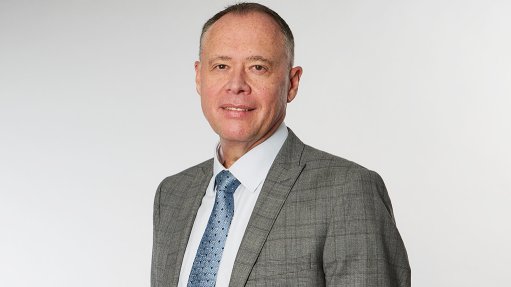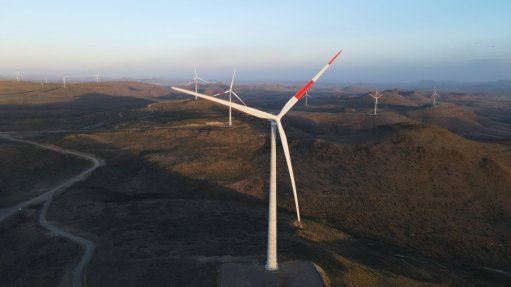Concerns remain over recycled wastewater to meet water demand
While treated wastewater, including water flushed down toilets, plugs a critical water supply gap, public trust, safety standards and proper oversight remain “alarmingly fragile”, said quality, environmental and risk management systems consultancy World Wide Industrial and Systems Engineers (WWISE).
The issue is not whether recycled water can be safe but whether it is managed safely, and concerns about recycled water entering homes without sufficient oversight are growing.
“Most people assume the water from their taps is clean and safe. But we know that many systems are not only outdated, they are failing. Public awareness of what recycled water is, how it is treated and whether it is being consumed, is shockingly low,” says WWISE Cape Town office ISO consultant Anzette Niemand.
A 2020 study revealed that only 28% of South Africans know the meaning of potable water, and only 35% understand the concept of grey water, while more recent research confirms that public education correlates directly with acceptance of reclaimed water in household use.
Recent cholera outbreaks, sewage spills and regular no drop scores in government water assessments have amplified public suspicion, especially around so-called “toilet-to-tap” reuse.
“The public perception issue is huge. The irony is that recycled water when properly treated can be cleaner than surface water from polluted rivers or dams,” says WWISE senior process engineer Gareth Swart, explaining that while the technology exists, there is a lack of implementation and accountability.
WWISE governance, risk and compliance specialist Herman Stoop agrees that wastewater reuse is not inherently unsafe.
“What makes it unsafe is poor infrastructure, limited treatment capacity and the lack of transparency that leaves consumers in the dark.”
According to the 2023/24 Auditor-General’s Public Finance Management Act Report, only 40% of water systems meet microbiological safety standards and 39% of the 850 wastewater treatment works are in a poor or critical state and under regulatory surveillance.
Only 4% to 5% of wastewater is currently recycled, while nearly 90% is released untreated or partially treated into rivers, dams and the ocean.
Further, the water sector was cited in 14 material irregularities for financial loss owing to mismanagement, while R10.3-billion was lost through wasteful government spending, with weak procurement and poor project delivery as major drivers.
Providing a practical roadmap for “fixing what is broken” are international quality standards such as ISO 9001 (quality management), ISO 24510 (drinking water and wastewater services) and ISO 14046 (water footprint).
These frameworks enable municipalities and utilities to design auditable, transparent and effective processes, even in under-resourced settings.
“Standards alone will not fix a broken municipality, but they offer structure, accountability and independent verification,” explains Stoop, noting that it is a significant step forward in a sector plagued by mistrust and technical failures.
However, implementing these systems requires sustained investment in infrastructure, technical skills and independent monitoring.
Many of South Africa’s water recycling projects, such as in Durban, Beaufort West, George and Mossel Bay, have seen success, often because they involve public-private partnerships and external oversight.
While billions of rands in investment is required, there is also a need for decentralised solutions, better-reporting systems and a commitment to train and retain skilled personnel.
“ISO systems help embed that kind of institutional culture,” Niemand adds.
WWISE, which works extensively with government departments and municipalities to implement ISO standards and improve compliance with international best practices, points to the successes of Singapore’s NEWater programme, which meets 40% of the city-state’s water demand through ultra-clean recycled water, as well as the success of Namibia in providing potable reuse for decades.
Locally, Cape Town’s Day Zero crisis in 2018 highlighted the urgent need for water diversification, but follow-through has been inconsistent.
“Singapore did not just build the systems, they built public trust. South Africa must do the same if recycled water is to be part of our national solution,” Swart says.
With droughts becoming more frequent and urban demand surging, water reuse is no longer optional, it is inevitable.
“We can no longer afford to treat wastewater as waste. It is a resource, and if handled properly, one that could ensure long-term water security for South Africa,” Stoop concluded.
Article Enquiry
Email Article
Save Article
Feedback
To advertise email advertising@creamermedia.co.za or click here
Press Office
Announcements
What's On
Subscribe to improve your user experience...
Option 1 (equivalent of R125 a month):
Receive a weekly copy of Creamer Media's Engineering News & Mining Weekly magazine
(print copy for those in South Africa and e-magazine for those outside of South Africa)
Receive daily email newsletters
Access to full search results
Access archive of magazine back copies
Access to Projects in Progress
Access to ONE Research Report of your choice in PDF format
Option 2 (equivalent of R375 a month):
All benefits from Option 1
PLUS
Access to Creamer Media's Research Channel Africa for ALL Research Reports, in PDF format, on various industrial and mining sectors
including Electricity; Water; Energy Transition; Hydrogen; Roads, Rail and Ports; Coal; Gold; Platinum; Battery Metals; etc.
Already a subscriber?
Forgotten your password?
Receive weekly copy of Creamer Media's Engineering News & Mining Weekly magazine (print copy for those in South Africa and e-magazine for those outside of South Africa)
➕
Recieve daily email newsletters
➕
Access to full search results
➕
Access archive of magazine back copies
➕
Access to Projects in Progress
➕
Access to ONE Research Report of your choice in PDF format
RESEARCH CHANNEL AFRICA
R4500 (equivalent of R375 a month)
SUBSCRIBEAll benefits from Option 1
➕
Access to Creamer Media's Research Channel Africa for ALL Research Reports on various industrial and mining sectors, in PDF format, including on:
Electricity
➕
Water
➕
Energy Transition
➕
Hydrogen
➕
Roads, Rail and Ports
➕
Coal
➕
Gold
➕
Platinum
➕
Battery Metals
➕
etc.
Receive all benefits from Option 1 or Option 2 delivered to numerous people at your company
➕
Multiple User names and Passwords for simultaneous log-ins
➕
Intranet integration access to all in your organisation


















